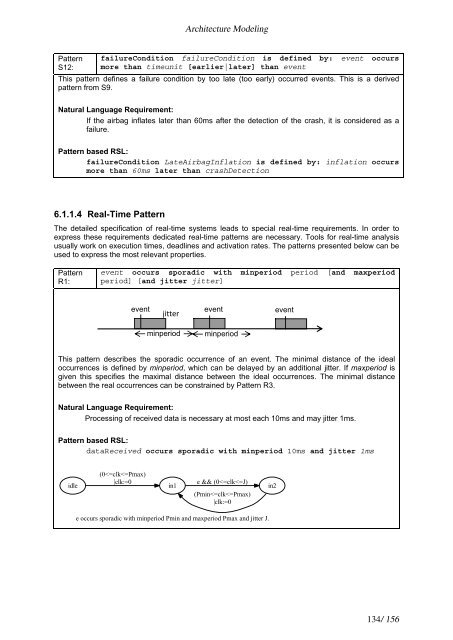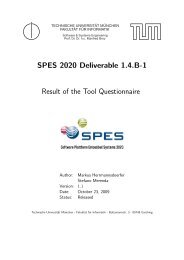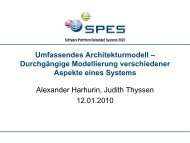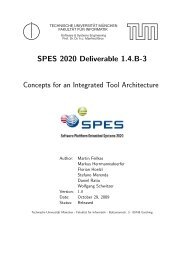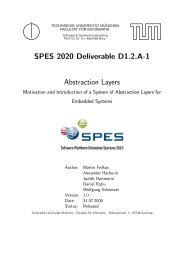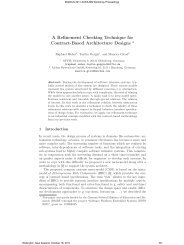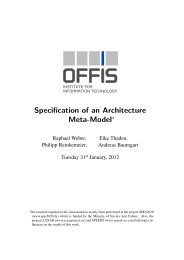Architecture Modeling - SPES 2020
Architecture Modeling - SPES 2020
Architecture Modeling - SPES 2020
Create successful ePaper yourself
Turn your PDF publications into a flip-book with our unique Google optimized e-Paper software.
Pattern<br />
S12:<br />
failureCondition failureCondition is defined by: event occurs<br />
more than timeunit [earlier|later] than event<br />
This pattern defines a failure condition by too late (too early) occurred events. This is a derived<br />
pattern from S9.<br />
Natural Language Requirement:<br />
If the airbag inflates later than 60ms after the detection of the crash, it is considered as a<br />
failure.<br />
Pattern based RSL:<br />
failureCondition LateAirbagInflation is defined by: inflation occurs<br />
more than 60ms later than crashDetection<br />
6.1.1.4 Real-Time Pattern<br />
The detailed specification of real-time systems leads to special real-time requirements. In order to<br />
express these requirements dedicated real-time patterns are necessary. Tools for real-time analysis<br />
usually work on execution times, deadlines and activation rates. The patterns presented below can be<br />
used to express the most relevant properties.<br />
Pattern<br />
R1:<br />
event occurs sporadic with minperiod period [and maxperiod<br />
period] [and jitter jitter]<br />
This pattern describes the sporadic occurrence of an event. The minimal distance of the ideal<br />
occurrences is defined by minperiod, which can be delayed by an additional jitter. If maxperiod is<br />
given this specifies the maximal distance between the ideal occurrences. The minimal distance<br />
between the real occurrences can be constrained by Pattern R3.<br />
Natural Language Requirement:<br />
Processing of received data is necessary at most each 10ms and may jitter 1ms.<br />
Pattern based RSL:<br />
dataReceived occurs sporadic with minperiod 10ms and jitter 1ms<br />
idle<br />
(0


